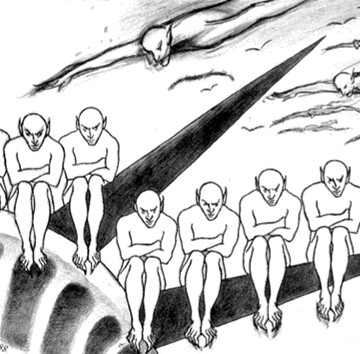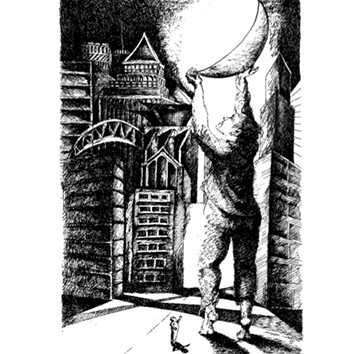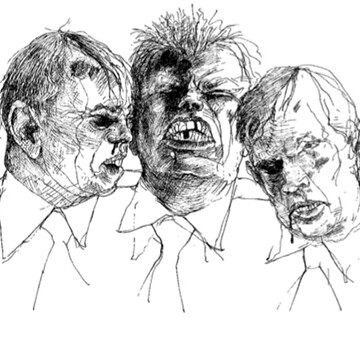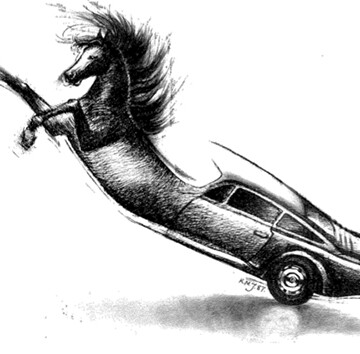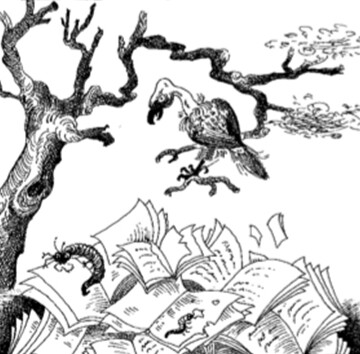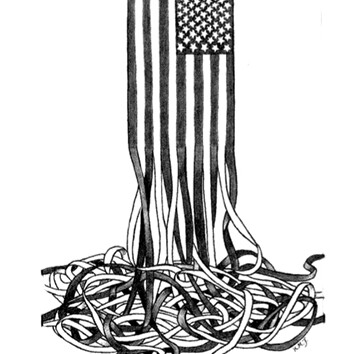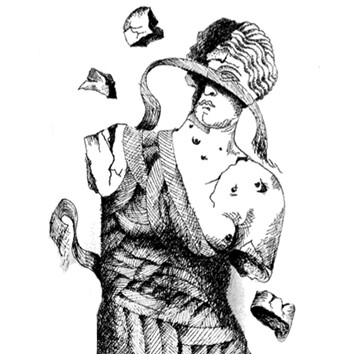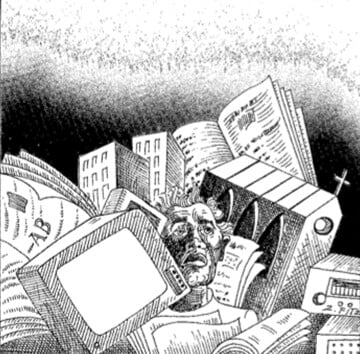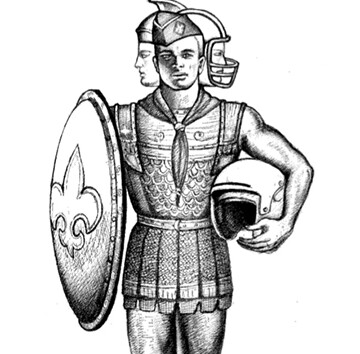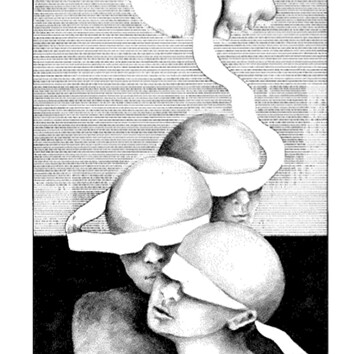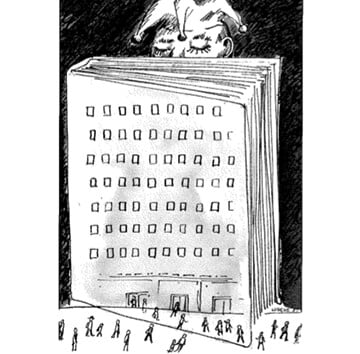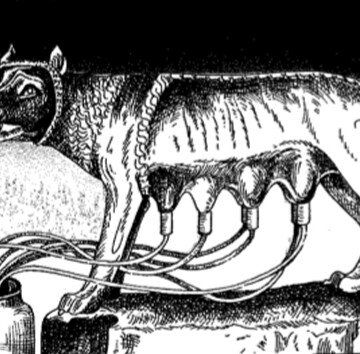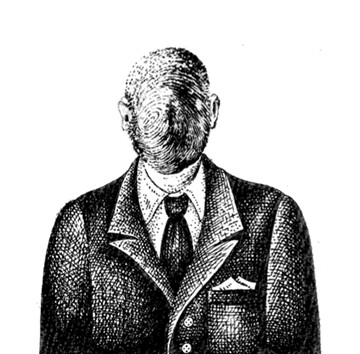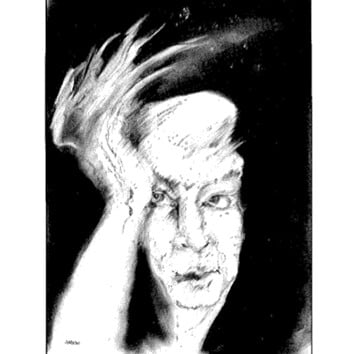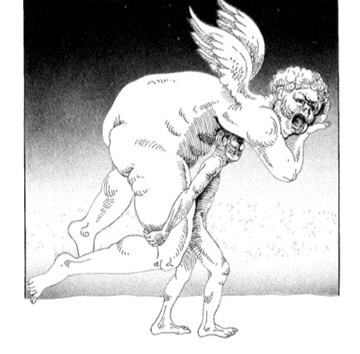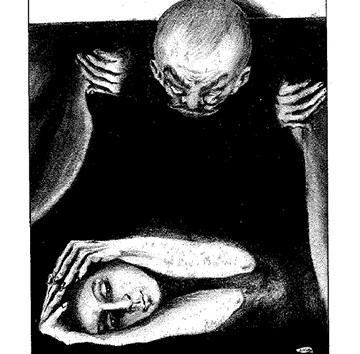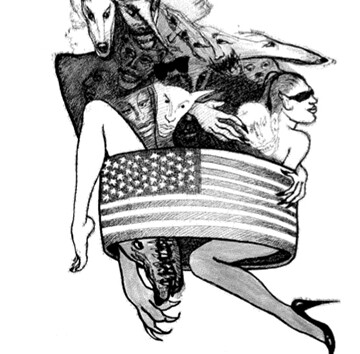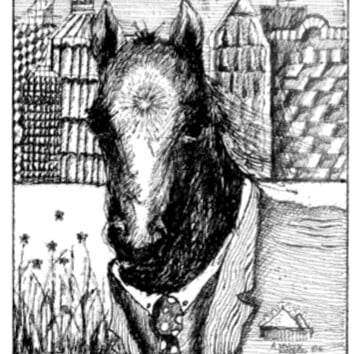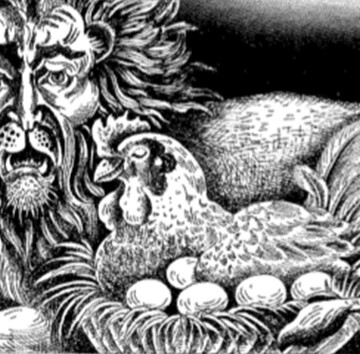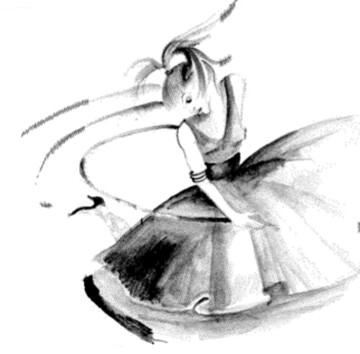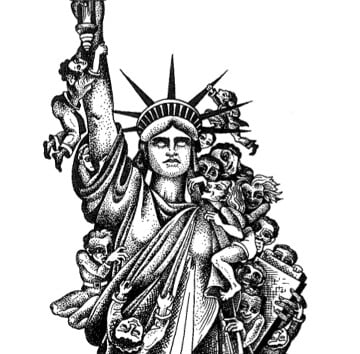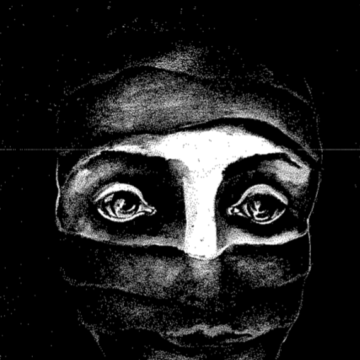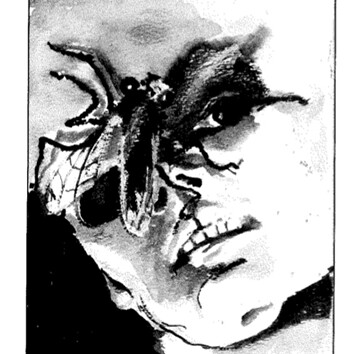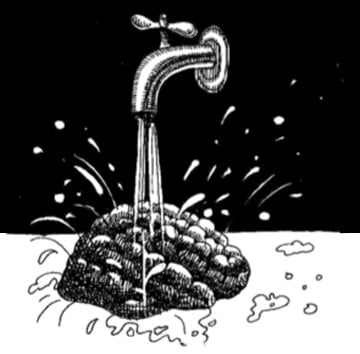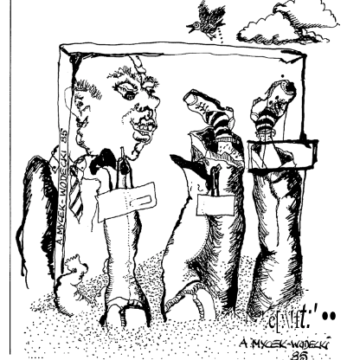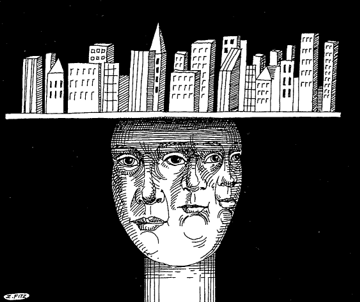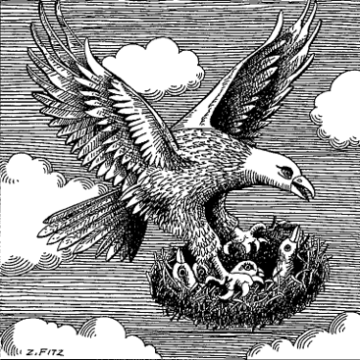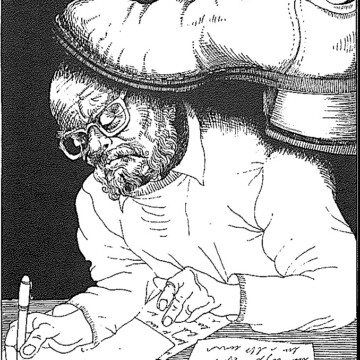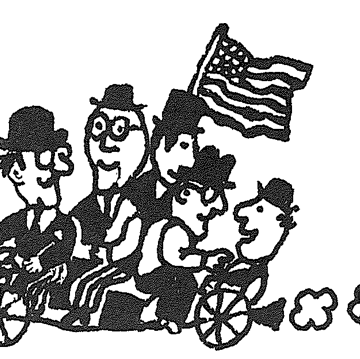Does America exist anymore, or is the nation only a fantasy concocted out of old Frank Capra movies, civics classes, and pamphlets from the Department of Education? The weight of the evidence suggests the latter. Twenty years ago—ancient history by the standards of the press—a considerable number of young men who refused to fight in...
Author: Thomas Fleming (Thomas Fleming)
Homage To T.S. Eliot
Nineteen eighty-eight is the centennial year of T.S. Eliot’s birth, and there is sure to be a flood of tributes to a writer that has changed the course of poetry and criticism and whose reactionary pronouncements on politics and religion have been an inspiration to conservatives of every description. Instead of offering to Mr. Eliot...
The Statecraft of Stooges
The speaker of the House of Representatives negotiates cordially with a Marxist dictator at the very time when the American government is sending aid to an armed resistance movement fighting to overthrow his regime; a political preacher flies to the Middle East and discusses the most sensitive foreign policy issues with unfriendly heads of state;...
A Time to Reap
I do not know what the city-bred recollect of childhood, but one of my earliest memories is of a sunny Easter morning, when I was no more than three or four years old, standing in an unpaved lane that led down to a tiny farm: the bright new grass was pushing through last year’s burnt-over...
Place of Asylum
The theater is dead, the novel dying, poetry extinct; biography is the province of graveyard ghouls, and history a battleground on which disheveled armies of academic theorists contend with hucksters and prostitutes for the fate of an entire civilization. These conclusions of a temperate man in a good humor pretty much sum up the business...
Tyranny In a Good Cause
Democracy or Republic? might well be the title of the D debate between liberals and conservatives on the nature of the American political system. (In the view of some liberals, the easiest way to spot a conservative is the habit of referring to America as a republic.) Democracy, in the strict procedural sense of one...
West Beats East
Along with Xenophon and Plutarch, Herodotus may be the most underappreciated writer of antiquity. His Histories (by which he meant something like “investigations”) of the relations between Greeks and barbarians has more narrative power than most novels, more colorful incidents than any travel book, and more insight into human nature than any 1,000 works of...
The Price Of Free Verse
“A post in our times,” wrote Thomas Love Peacock, “is a semi-barbarian in a civilized community.” What Peacock meant by civilized community is not too hard to guess: that rational, humane, progressive society of Britain and Northern Europe, which Peacock’s eccentric friends—Shelley, Coleridge, and Byron—all seemed bent on destroying. Poets were barbaric, because they continued...
Cultural Conservation
A few years back, when the air was fresh and the world was new, some of us thought that the election of Ronald Reagan was only the beginning of the beginning of “morning in America.” It is a common mistake. Some decades have an identity for those who set their mark upon them. In periods...
The Triumph of Time
The second law of thermodynamics poses a problem for evolutionary biologists. While it seems to predict increasing disorder over time, the record of evolution suggests ever-increasing order and higher levels of organization. The common solution to the paradox was to look for a balance between organic systems and their environment. Perhaps there was, as Schrodinger...
Arms and The Man
I must have been 11 or 12 years old before my father put a gun into my hands and told me to shoot. By then, I had been out hunting with him several times a year but I had not ceased marveling at the efficiency and grace with which he handled a shotgun or a...
Thrice-Told Tales
Politics and tale-telling are virtually inseparable activities. Great political events—wars, rebellions, social crusades—do not exert their full measure of influence until they are whittled into legends. More than one British statesman has derived his understanding of the Wars of the Roses from Shakespeare’s Histories, and in the United States the stories of Washington at Valley...
Literacy Before the Revolution
Publishers Weekly must be the most depressing magazine published in the United States. Oh, there are others like Esquire that make us despair for the affluent numskulls who swap life-styles as if they were wives, or The New Yorker that makes us remember how really boring New York can be. But for the sick feeling...
No Latin, Much Less Greek
In pondering where the modern age went wrong, writers have pointed to as many answers as there are systems of thought. For conservative editorialists, the problem is Marxism or its lifeless reflection, liberalism. Irving Babbitt blamed the Romantics, while Richard Weaver nailed his thesis on the door of nominalism; and there are still literary scholars...
The Magnificent Tarkington
The Midwest is a lucky place for an American novelist to be from. Sinclair Lewis, Sherwood Anderson, and Theodore Dreiser all made good money by holding up their native region to international ridicule, while Hemingway and Fitzgerald did even better by simply escaping to the East and eventually to Europe. Both, it is true, set...
Censorship: When to Say No
Every Aprilsince1981theAmericanSocietyof journalists and Authors sponsors an “I Read Banned Books” campaign. Theyroutinelytrotoutcopiesofchildren’sbookslikeAlicein Wonderland or Maty Poppins and modern classics like Ulysses—all of which have been censored by somebody somewhere. One of them inevitably quotes Jefferson ontolerating”errorofopinion,”andsomeprofessionallibrarianis suretowarnusthatiftheprudeshavetheirway,theywillsoon be removing copies of Shakespeare and the Bible from the library shelves. This year the New York...
The Business of Business
Jefferson was of the opinion that the tree of liberty was not a hardy perennial that could be safely neglected. Once planted by a revolution, it needed to be periodically “refreshed by the blood of patriots and tyrants.” Jefferson’s radical vision of revolutionary violence was muted, in later years, by his conservative skepticism, but the...
Speak the Word Only
Modern man often seems ill at ease. It is as if the world has been broken and the human community shattered into millions of charged particles, attracting or repelling each other in their chance meetings. Some such notion has threatened many of the best (and second best) minds of the past two centuries. For Hegelians,...
Plain People
The Century of the Common Man. That was the phrase Henry Wallace used to describe the world emerging out of the Second World War. Wars do have a way of leveling society into the great democracy of the dead and dying, and it is certainly the case that, in the two great wars of the...
The Uses of Diversity: Recovering the Recent Past
One of the more interesting recent books of popular history, Paul Johnson’s Modern Times, stakes out the period between the outbreak of World War I to almost the present. In Johnson’s intellectual framework, the boundaries of modernity are marked by two great revolutionaries: Albert Einstein, who threw the thinking world into a turmoil of doubt...
Short Views
Some people love to go to Washington. The sight of so much power and wealth is exhilarating, especially for young conservative writers who discover that their names are recognized on the Hill. For many, however, the reaction is just the reverse. Within a few hours they are mulling over certain scriptural passages in Eliot—”Oh my...
Going Back to Charleston
The United States were once precisely that, a union of unique and independent states—each making its own literary and intellectual contribution to the national experience. Of these states, none was so peculiar as South Carolina, and for much of its intellectual history, South Carolina was Charleston. In the generation before The War, Charleston was in...
Journalists and Other Anthropoids
It is over 60 years since the Scopes Trial attracted journalists like Henry Mencken and Joseph Wood Krutch to Dayton, Tennessee, and yet the teaching of evolution is once again as controversial as—it was in 1925. Most of the debate is carried out between militant fundamentalists and equally militant materialists. While most of the fundamentalists...
Fruitless Grain
The great American story for at least 100 years has been a tale like Mr. Smith Goes to Washington or Hawthorne’s “My Kinsman Major Molineux”: the rube who comes to the city and loses his innocence. Like Jack in the fairy tale, we are eager to trade in the family cow for a chance to...
Old Adam, New Eve
Feminist writers sometimes give us the impression that the nonworking mother is a rare bird like the Bach man’s Warbler—sighted (not very reliably) once a decade or so in a corner of I’on Swamp in the South Carolina low country. The ladies magazines do occasionally report on rumors that some professional women like Janet Fallows...
Getting America Right
American novelists no longer write about America. That, at least, was the judgment of many foreign writers who attended the recent PEN Conference. It would be hard to make the same complaint about our poets. In fact, it is hard to escape the feeling that a good many American poets are engaged in an exploration,...
Rock ‘N’ Roll Never Forgets: Healing the Wounds of the 60’s
In 1985 the senior members of the baby boom generation turned 40. Many of them are surprised to be still around. The films and songs of the 50’s and 60’s were so full of “disorder and early sorrow” that it was, perhaps, no surprise how many real-life actors and singers, who took the place of...
Trouble in Paradise
The origin and nature of the state has been at the heart of political theory from the time of Plato and Aristotle. While speculations about man’s primal innocence in a state of nature cannot be taken seriously as science, they continue to influence political propaganda. Liberal philosophers like Rawls and Nozick continue to write about...
Conspiracies Against the Nation
The Reagan Administration’s Baby Doe policy is finally being tested in the Supreme Court. Supporters see the law as a necessary guarantee of the rights of handicapped infants whose lives are threatened by selfish parents and amoral physicians. The Federal government has a positive obligation, they insist, to send investigation teams—Baby Doe Squads, as they...
King, Queen, Knave—Mind, Brain, and Body
“Where so’er I turn my view All is strange, yet nothing new; Endless labour all along, Endless labour to be wrong.” —Samuel Johnson Epicurus had an answer for everything. The universe consisted of nothing except atoms and void; the qualities of matter and of our sensory experience—hardness, color, heaviness, etc.—were determined completely by the size,...
Successful Crimes
Crime is big business in the U.S. It is bigger than the billions of dollars that are made in the drug traffic every year and the astronomical revenues from prostitution, gambling, and armed robbery. (Robbers alone are estimated to cost us $355 thousand a day.) Even honest citizens gel a piece of the action: law...
Between the Lines
“He whom nature has made weak and idleness keeps ignorant may yet support his vanity by the name of a critic.” —Samuel Johnson Not too long ago we devoted an issue to the death of serious art. While there may be many objections to the thesis that popular culture has replaced painting, the symphony, and...
Aloha, Captain Cook
The relationship between culture and history, structure and event is one of those questions to which every school of social science has an answer. Marshall Sahlins belongs to that vanishing species: the historically minded anthropologist. Like his mentor, Leslie White, and his colleague, Elman Service, Sahlins has dedicated much of his career to discovering the...
Zeus, Whoever He Is
Walter Burkert may be the world’s leading authority on the religion of the ancient Greeks. Like several predecessors in the field—notably Friedrich Nietzsche and Walter Otto—Burkert writes almost as an enthusiast. In a series of important works, he has paid the Greeks the very high courtesy of taking them seriously. Burkert is a sort of...
Shelter From the Storm
The trial of 12 sanctuary workers in Tucson has heated up an issue which is being hailed in many quarters as the great moral issue of the 1980’s. The movement, whose members provide protection to illegal immigrants from Central America, is protesting the U.S. Immigration and Naturalization Service’s refusal to recognize Salvadoran and Guatemalan emigrants...
All Gone in Search of America
What does it mean to be an American? Major debates over legislation and proposed constitutional amendments raise the question. Without stretching a point too much, it is easy to see the American identity as the underlying question on the immigration issue, the Equal Rights. Amendment, and perhaps even in the debate over abortion. It comes...
La Vie en Rouge
The sins of South Africa are once again heavy on the American conscience. The flaws and contradictions built into her multiracial social organization are subjected to the most minute scrutiny and the imperfections in her “human rights” record are held up as justification for revolutionary forces that would cheerfully slaughter the European population of Africa’s...
Waiting For the End
In the Gilbert and Sullivan series running currently on PBS, many American television viewers were treated for the first time to a performance of Patience, a masterful satire on the pretensions of aesthetes-the crowd George I described as “boets and bainters.” When the heroine decides to humble herself by trying to love the high priest of...
Leave the Kids Alone
The recent Supreme Court decision striking down a Silent Prayer Law in Alabama came as a shock to many people. What harm could be done by a moment of silence that the students were free to dedicate—or not dedicate—to a Supreme Being? Religion, it now seems, is to be treated like the daughter who disgraces...
The Serbian Muse
The literature of the Serbs must be among the least known in Europe, standing somewhere between the Albanians, whose most famous cultural contribution is John Belushi, and the Scandinavians, who—if they pooled their resources—could field at least a basket ball team of literary celebrities. In modern times, the literary Serb best known to the West...
Why Another Magazine of Ideas?
Leopold Tyrmand founded Chronicles in 1977 to provide a conservative and “value-oriented criticism” of arts and letters, morals and manners. From the very first, Tyrmand’s Chronicles exposed the pretentions of the radical chic culture and subjected the permissive, “anything goes” world view of liberalism to an eloquent and withering scorn. Under his editorship, the magazine...
Psyche
Words like liberal and conservative have been losing whatever meaning they once had. An old Tory would not have seen anything very conservative in free trade, and Senator Bob Taft would certainly have had reservations about America’s role as international policeman. But liber al still has discernible significance in ethics, where the great liberal traditions of Locke, Adam Smith, and the Utilitarians...
Friends of the Family
Everyone wants to save the American family. Not a day goes by, it seems, without some politician or professor issuing a call to arms or an invitation to a congressional hearing. For a long time the family had been a conservative/ Republican issue, but last fall both Mr. Mondale and Ms. Ferraro made a great...
Shine, Perishing Republic
Murray Rothbard recently described American conservatism as “chaos and old night.” Apart from the nasty implication that we are all dunces, there is something to what he says. It is getting harder every year to figure out just what it is that makes a conservative. Consider Newt Gingrich-the Carl Sagan of politics. He wants to...
Thunder on the Right
National Reviewhas been the flagship of the conservative movement for almost 30 years. From the very beginning, its editors set the agenda for American conservatism. NR’s peculiar mixture of capitalist anticommunism with the concerns of traditional Catholicism defined the movement. Even before being cursed with the name “fusionism,” it was a potent combination. Where else...
…Who Help Themselves
We take too much for granted in America. Whenever we have a problem, we assume that somebody else is paid to solve it, somebody from the government. All the ancient burdens of the human flesh—poverty and envy, greed and arrogance—have been turned over to one or another bureaucratic agency. We sleep better at night knowing...
Genes & Jingo
Popular journalists have begun writing off the sociobiology revolution. “Can Sociobiology Be Saved? and quote the learned opinions of Stephen J. Gould and Ashley Montagu (would they lie?). They indulge in vaguely worded smears: Konrad Lorenz was a nazi, E. O. Wilson is a Southerner, and sociobiology is a code word for racism among members...
Censorship: When to Say No
Every April since 1981 the American Society of journalists and Authors sponsors an “I Read Banned Books” campaign. They routinely trot out copies of children’s books like Alice in Wonderland or Mary Poppins and modern classics like Ulysses—all of which have been censored by somebody somewhere. One of them inevitably quotes Jefferson on tolerating “error...
Censorship: When to Say No
Every April since 1981 the American Society of journalists and Authors sponsors an “I Read Banned Books” campaign. They routinely trot out copies of children’s books like Alice in Wonderland or Mary Poppins and modern classics like Ulysses—all of which have been censored by somebody somewhere. One of them inevitably quotes Jefferson on tolerating “error...
Pragmatic Problems
Jacques Barzun: A Stroll With William James; Harper & Row; New York. William James is the nearest thing to a thoroughly American philosopher this nation has produced. George Santayana complained that James felt compelled to play the part of a home-spun American a role enjoyed by our intellectuals from Ben Franklin to Ezra Pound. Santayana...
